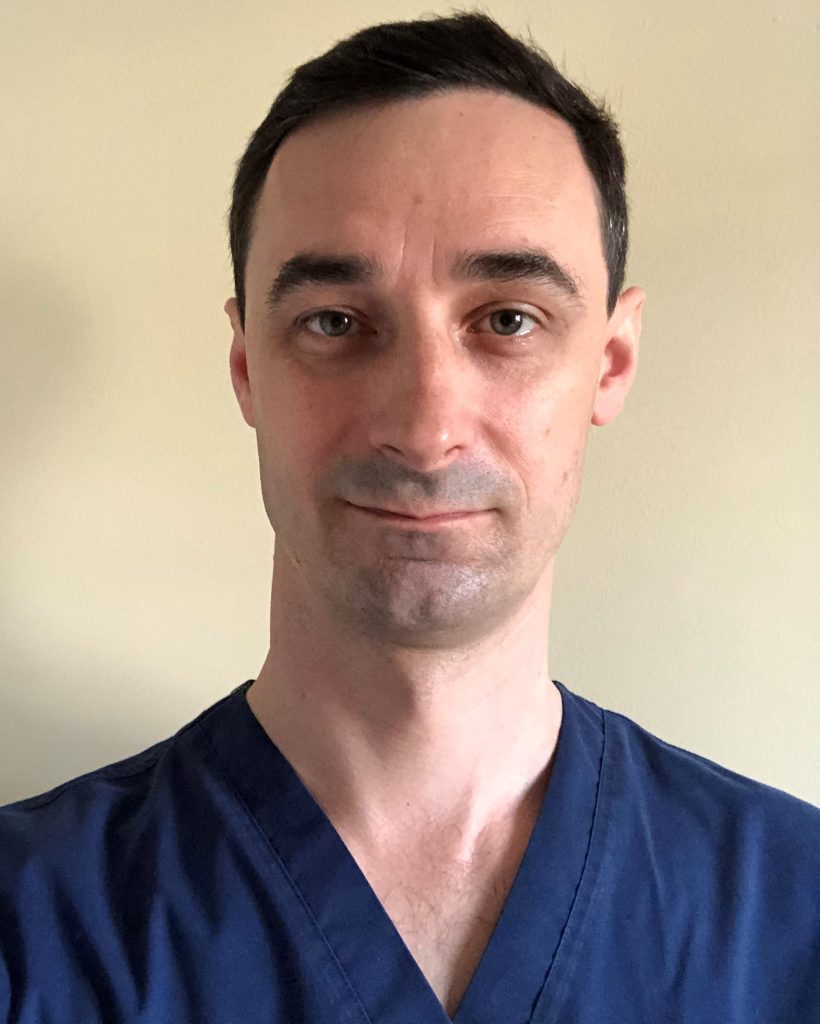Inguinal hernias can have a genetic origin, which is linked to impaired collagen synthesis and weakened abdominal wall muscles. They can also arise secondarily during abnormal tissue fusion after a previous procedure. A hernia often manifests itself as severe pain in the groin and lower abdomen, the appearance of a lump in the groin, or bloating and nausea. This damage can lead to inflammation of the peritoneal cavity and poses a risk to the patient’s health. Laparoscopic surgery may be the solution to the problem. Such a procedure is carried out at St. Raphael’s Hospital in Kraków by dr n. med. Łukasz Strzępek.
What is laparoscopic surgery for inguinal hernia?
Dr n. med. Łukasz Strzępek: This is a procedure usually performed under general anaesthesia. A laparoscope is a thin surgical instrument with a camera at the end. It is inserted through the abdominal wall in the direction of the hernia. The camera transmits a magnified image to a computer screen, allowing the progress of the procedure to be effectively monitored. The remaining surgical instruments are then inserted into the hernia area, which makes it possible to work with them in the peritoneal cavity. Synthetic mesh is used to repair the site of hernia formation.
What are the advantages of laparoscopic hernia repair surgery?
The main advantage of the procedure is that the operation is performed only through small incisions using a laparoscope. A plastic mesh is used to close the abdominal wall defect and after the surgery, the patient usually returns to normal life activities more quickly than with more invasive procedures. Post-operative pain, both acute and chronic, is also less frequent thanks to the use of the laparoscopic method. In the case of bilateral inguinal hernias, it is possible to repair both during one operation.
Which patients are eligible for the procedure? Are there any contraindications to the procedure?
As the procedure is carried out under general anaesthesia, the patient undergoes an anaesthetic qualification before the procedure. The majority of hernia patients are eligible for surgery, especially physically active patients, as they experience faster recovery and less pain. Laparoscopic surgery is particularly recommended for the treatment of bilateral hernias. A scrotal hernia can be a disqualifying factor for the patient because then the surgery time can be long. Qualification for private procedures is currently carried out at St. Raphael’s Hospital in Kraków, and soon also at the facility at 5 Armii Krajowej Street in Kraków.
Dr n. med. Łukasz Strzępek is a graduate of the Jagiellonian University Medical College in Kraków. He specialises in general and oncological surgery. He has also attended many courses and seminars, in Poland and abroad, to broaden his professional knowledge. He is currently the Head of the Clinical Department of Oncological Surgery and General Surgery at St. Raphael’s Hospital in Kraków.






